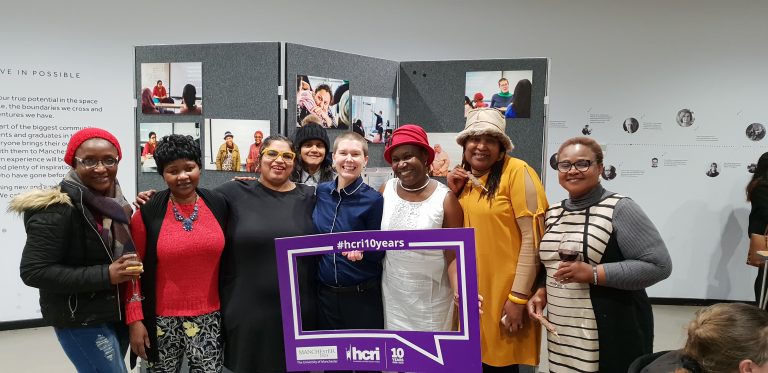World Refugee Week: A discussion with Dr Rubina Jasani on empowering asylum-seeking women
During World Refugee Week 2020, we interviewed Dr Rubina Jasani to find out more about her collaborative partnership with Women Asylum Seekers Together (WAST), the challenges refugee and migrant women face in the COVID-19 crisis and the limits of self-advocacy.
We begin by asking Rubina about her involvement with former lecturer in Humanitarian Studies, Dr Jenna Murray de López, in training asylum-seeking women at WAST to become researchers and filmmakers.
Can you tell us about the WAST PEER research project?
We wanted to create a project around education but also around giving women the resources to tell their own stories. As we were working on violence and in spaces of extreme poverty and deprivation a lot of the time, people felt that we were stealing their stories. Having the support of academics, Dr Necla Acik and Dr Sarah Marie Hall, we embarked on this journey of training them as researchers, as we would educate any of our MA or PhD students in research methods. We initially started with twenty peer researchers, but these women had complicated lives. This research was later made into a film, and we then graduated ten peer researchers- opening the university space up to them
During the interviews these women did, we learnt how upset they felt about the lack of education, especially among healthcare professionals about the rights of an asylum seeker and their obligations.
From training them to become filmmakers, we created resources to be used by medical schools to train doctors, nurses, medics, and midwives, about what asylum seekers are entitled to. The whole conversation was around secondary care, which included mental health, reproductive rights, and what happens when women get pregnant, and the kind of challenges that women go through. The aim has always been educating the women to tell their stories, helping them to take ownership of the research skills they have acquired to create the resources that would then be used. The No Recourse project was later shortlisted for a Making a Difference Award by Social Responsibility at the University in the outstanding contribution to widening participation category.
We also have just returned a collaborative book chapter that talks about the challenges of opening up the University to asylum seekers and refugees, and what happens when the subject of research becomes your student in the classroom. This raises questions on the kind of power hierarchies that are challenged, what has broken, what are the new avenues of knowledge production that are opened up, and what are the challenges.
What are the main challenges migrant women face today?
I will refer to the challenges I have seen as one of the board of directors and volunteers for Safety for Sisters (SFS) – a charity that works with asylum seekers and migrant women who are survivors of domestic violence.
I think when it comes to both organisations, the main challenge is no recourse to public funds, especially in current times when people were forced to go into lockdown. This has created a real crunch for those living on £5 a day with no access to resources such as the internet. Many services also transitioned to Zoom.
Many of these women living in hostels were shifted, as the hostels shut down overnight. It is evident that during the lockdown, the rate of domestic violence went up. This is established through research that is coming in from Brazil, China, India, Spain, and France. For Manchester, this resulted in a higher demand for safety from women, which meant that overnight we had to think of strategies, think of money, to move them to safety.
Since the COVID-19 crisis, the world of support that was available to them was suddenly made unavailable. The weekly drop-ins at WAST, for example, was one of the most significant recreations for them as they would celebrate successes and get the legal aid and mental health support that they needed. Organisations such as WAST and SFS fear the impact of the pandemic on womens’ asylum claims, the loss of the physical space, and their access to treatment for COVID-19.
A position paper a few other colleagues from SFS have written identifies how women -especially migrant women- are looked at through the lens of immigration and not looked at as survivors of domestic violence. They are terrified to come out in the open in case they are deported.
We have had to liaise and lobby hard with the city council to try and scrap the Government’s no recourse of public funds policy. We also had to think of how we were going to work with grass-roots organisations to deal with the COVID-19 pandemic.
Can you tell us about the Participatory Ethnographic Evaluation Research (PEER): forced migrants and the challenge of self-advocacy?
This research is something that we had identified as the aim of the project initially, but that is something that we have documented as a process. I think what we were interested in figuring out is: what were the limitations of self-advocacy?
A lot of these women, for instance, cannot take a political stand and cannot be seen at a protest march. Although WAST, for example, is a user-led organisation, there are other limits of self-advocacy for these women because they do not have the right and are scared of being sent to detention centres or back home.
We haven’t written anything about the implications of self-advocacy until now, but intend to over the summer.



0 Comments